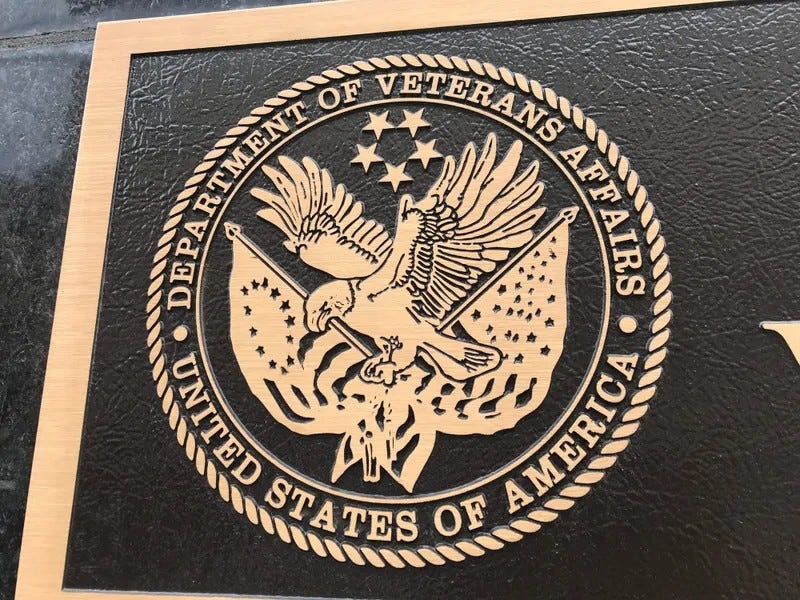
From April 1, 2022 to March 31, 2023, there were 156 founded reports of sexual assault in Department of Veterans Affairs facilities nationwide.
That is a 12 percent increase from April 1, 2021 - March 31, 2022, when there were 139 founded reports of sexual assault, according to numbers provided by Veterans Affairs. The total number of founded sexual assault incidents are a combination of patient on staff, patient on patient, staff on patient, staff on staff, and other categories. The majority of reports were patient-on-employee incidents.
Sexual assault includes any type of sexual contact or attempted sexual contact that occurs without the explicit consent of the recipient of the unwanted sexual activity. Assaults may involve psychological coercion, physical force, or victims who cannot consent due to mental illness or other factors. VA has a broad definition that includes actions such as rape or attempted rape, forced sexual acts, grabbing, hugging, stroking, fondling, intentionally brushing up against someone or unwanted sexual touching.
“Sexual assault or harassment of any kind is not and will not be tolerated at VA,” said VA Press Secretary Terrence Hayes. “We are continually enhancing reporting, policies, and procedures related to sexual assault and harassment to ensure a safe and welcoming environment for all who visit our facilities.”
One of those reporting enhancements was announced in June when the VA said veterans, their families, caregivers, and survivors could call 1-800-MyVA411 to report incidents of sexual assault or sexual harassment at its facilities.
Whenever someone calls the hotline, they are able to confidentially report incidents of sexual assault or harassment that occur at VA facilities. At the time of the announcement, VA Undersecretary for Health Dr. Shereef Elnahal said he expects the number of reports to increase as a result of the new capability, which is part of VA’s “no wrong door” reporting policy for sexual assault or sexual harassment.
“When VA instituted new programming establishing a more open environment around reporting – we expected an increase in reports,” stressed Hayes. “I see this as a positive sign because now visitors and employees feel heard – feel comfortable reporting – and that’s the environment we want to foster at VA. We believe this new approach will lead to swifter corrective action and the elimination of sexual assault and harassment.”
The increase in the number of founded sexual assaults at VA facilities has caught the attention of both the House and Senate Veterans Affairs Committees.
A spokesperson for the Senate Veterans Affairs Committee said its Chairman Sen. Jon Tester (D-MO) is disturbed by the reports and believes inappropriate behavior of any kind has no place at VA.
“Every veteran deserves to be heard and respected, which is why Senator Tester led the push to increase accountability and strengthen VA’s sexual assault policy under his bipartisan Deborah Sampson Act,” the spokesperson said. “He will continue to hold VA’s feet to the fire in addressing this systemic issue to ensure veterans receive the safest care possible.”
Part of Public Law 116-315, the Deborah Sampson Act required VA to create an anti-harassment and anti-sexual assault policy and designate points of contact at various levels of VA, including each facility, to receive reports of harassment/assault.
A spokesperson of the House Veterans Affairs Committee said it is also aware of the increase and will be holding a closed-door roundtable on July 30 through the Women Veteran Task Force with Veteran Services Organizations, VA, and stakeholders to discuss harassment and safety for all veterans in VA’s facilities.
Sexual assault reports at VA facilities are investigated by the VA Office of the Inspector General, VA Police, or jointly between VA and local law enforcement authorities. The cases can be adjudicated in both federal and state court, depending on whether the U.S. Attorney’s Office accepts or defers the case from VA or the OIG. Cases that occur outside of VA jurisdiction are solely handled by local authorities.
Reach Julia LeDoux at Julia@connectingvets.com.


